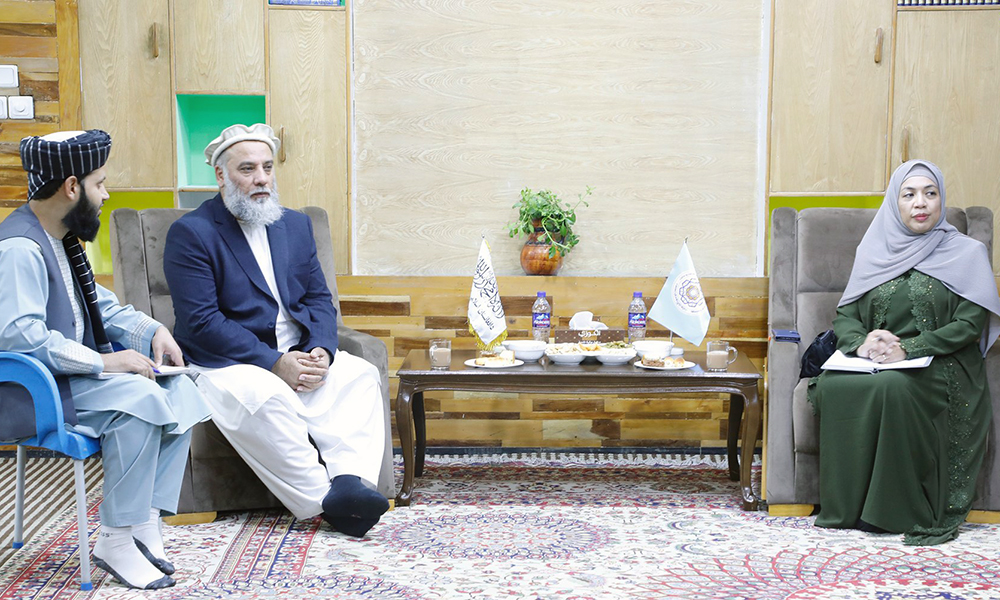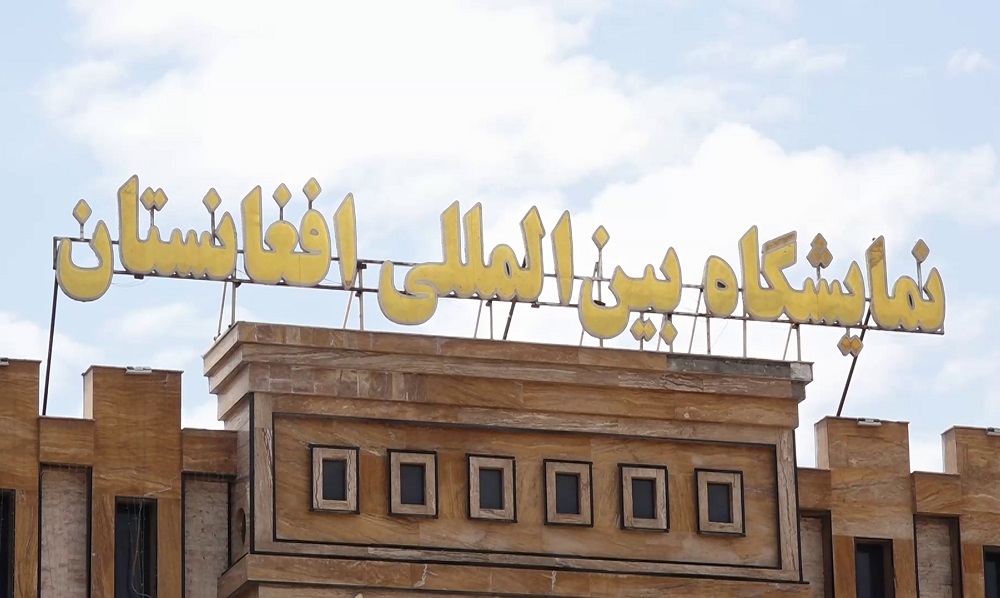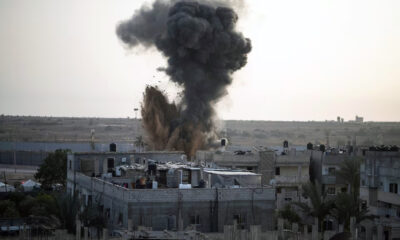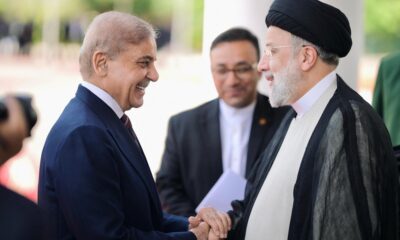Business
ADB Approves $100 Million Grant to Support Afghanistan’s COVID-19 Response

The Asian Development Bank (ADB) on Wednesday approved a $100 million grant to help the Government of Afghanistan respond to the coronavirus disease (COVID-19) pandemic, the statement said.
“ADB reaffirms its full commitment to supporting Afghanistan in its fight against COVID-19 and reducing the adverse impact of the pandemic on the lives of Afghans and the economy,” said ADB President Masatsugu Asakawa. “The assistance will help strengthen the health system, expand social protection for the poor and vulnerable population while ensuring gender mainstreaming, and support macroeconomic stabilization and job creation in Afghanistan.”
Afghanistan’s economic outlook has deteriorated during the COVID-19 pandemic because of business lockdowns, a sharp drop in household incomes, and a downturn in regional trade and remittances. ADB forecasts Afghanistan’s gross domestic product (GDP) to contract by 5.0% this year. Nearly 250,000 micro, small, and medium-sized enterprises (MSMEs), accounting for over 80% of nonagricultural employment, have been hit hard. The unemployment rate is projected to rise to 37.9% in 2020 from 23.9% in 2019. The budget deficit including grants has nearly tripled, reaching 3% of GDP in 2020, compared to 2019. Spikes in food prices due to disruptions in the food supply have increased the food insecurity risks.
According to the statement the national poverty rate is projected to reach up to 72% this year from 55% in 2017, with an additional 6 million people falling into poverty. A health emergency of such magnitude has aggravated the pressure on the country’s inadequate health care system, compounded by increasing transmission risks from internally displaced persons, returning migrants, and refugees.
To mitigate the adverse impacts of the pandemic, the government rolled out its comprehensive countercyclical pandemic response package of $633.9 million, comprising health, social protection, and macroeconomic stabilization measures. ADB’s COVID-19 Active Response and Expenditure Support (CARES) Program grant will support the delivery of the government’s response package, read the statement.
The program has several components. It will support the government in conducting a nationwide gender-sensitive public awareness campaign for COVID-19, scaling up the capacity of medical facilities, including gender-sensitive treatment facilities and the availability of medical supplies and equipment.
It will help the government extend its targeted social safety nets, including daily bread assistance to at least 310,000 poor households; water and electricity bill coverage for at least 350,000 households in Kabul, with priority given to women-headed households; coverage of over 130,000 old-age pensioners and their female heirs, including biometric registration; one-time cash transfers of 6,000 afghanis ($78) to at least 41,500 internally displaced persons and refugees; and remuneration packages for at least 32,570 disabled persons and the families of people killed in conflicts.
The program will also support the implementation of stabilization measures covering state-owned enterprises, job creation in the agriculture sector, and MSMEs. The MSME support will comprise tax exemptions, subsidized lending, vocational training, and market access.
The grant also features measures to promote good governance and anticorruption, including having a monitoring and evaluation specialist at the Ministry of Finance (MOF) to support program implementation and reporting, electronic tracking of fund flows at the MOF, and auditing of pandemic-related spending by the Supreme Audit Office, which are built into the assistance. ADB had earlier provided technical assistance to strengthen debt management and monitoring of fiscal risks, as well as project management capacity, procurement systems, and safeguards compliance.
The CARES Program is funded through the COVID-19 pandemic response option (CPRO) under ADB’s Countercyclical Support Facility. CPRO was established as part of ADB’s $20 billion expanded assistance for developing member countries’ COVID-19 response announced in April. Visit ADB’s website to learn more about its ongoing response.
This comes after in May, ADB approved a $40 million emergency assistance grant for Afghanistan. It supports the construction of 15 and rehabilitation of 5 hospitals and medical facilities, adding more than 1,100 new hospital beds; procurement of urgent medicines, medical supplies, and equipment; and training of at least 3,000 health workers, including 900 women, in COVID-19 surveillance, prevention, and treatment.
Business
Azizi calls on Malaysian investors to invest in Afghanistan

Nooruddin Azizi, Acting Minister of Commerce and Industry, met with representatives from the ministries of foreign affairs, defense and interior of Malaysia, along with other senior officials, on Wednesday and called on Malaysians to invest in Afghanistan.
The visiting delegation is being led by senior diplomat Dr. Shazelina Zainul Abidin.
According to the IEA’s foreign ministry, the two sides discussed bilateral trade, holding a business communication conference to strengthen trade relations between the two countries, the trade balance between Afghanistan and Malaysia, and creating a market for Afghan products, including carpets, cotton, and minerals.
According to the ministry, at the end of the meeting, the Acting Minister emphasized the increase of investment from regional countries in Afghanistan and called on Malaysian investors to also invest in Afghanistan.
Business
Afghanistan starts exporting via railway to Turkey

The Ministry of Interior says that Afghanistan has started exporting goods to Turkey via the Herat-Khaf railway line.
In a post on X, the ministry said: “Afghanistan’s exports to Turkey started in a calm atmosphere through the Herat-Khaf railway line.”
The ministry added that one train will run daily for a month and then two trains will run daily.
According to the ministry, the security of Khaf-Herat railway line is provided by the guards of the National Public Protection Agency.
Khaf-Herat railway project not only connects Iran and Afghanistan by rail, but also completes a 2,000-kilometer route along the east-west rail corridor from China, through Uzbekistan, to Afghanistan, to Iran, and on to Turkey and Europe.
As a landlocked country, this railway network will provide a safe route to connect with Europe via Iran’s railway network and Iran’s southern ports.
This railway line is strategic for trade between Iran and Afghanistan and will allow six million tons of goods to be sent between the two countries.
Business
Afghanistan, Kazakhstan to hold joint expo in Kabul

A joint expo between Afghanistan and Kazakhstan will be held in Kabul in the next four days, officials said on Sunday.
Officials of the Ministry of Industry and Commerce said that the two-day expo will be held for the purpose of expanding and strengthening trade relations between the two countries.
“This expo will be held as a follow-up of the Kazakh-Afghan international expo, which was held in the city of Astana, Kazakhstan, with the participation of a large delegation of the government and the private sector of the Islamic Emirate of Afghanistan,” Abdulsalam Javad Akhundzadeh, the spokesman of the Ministry of Industry and Commerce, said.
“At this expo, domestic products from different sectors of Afghanistan and the Republic of Kazakhstan will be put on display for two days.”
According to officials, 40 large Kazakh companies, and 40 large Afghan companies will exhibit their products.
Mohammad Saber Latifi, head of the Afghanistan International Expo Center, said that fruits, minerals and commercial services will be displayed at the expo.
During the expo, various memorandums of understanding for the trade of goods are also expected to be signed by companies.
-

 Sport5 days ago
Sport5 days agoAfghanistan Champions League kicks off with grand opening ceremony
-

 Latest News4 days ago
Latest News4 days agoPakistan’s frontiers minister stresses ‘dignified’ return of Afghan refugees
-

 Latest News5 days ago
Latest News5 days agoMore than 800 Afghan refugees deported from Pakistan in two days
-

 Regional3 days ago
Regional3 days agoIranian president lands in Pakistan for three-day visit to mend ties
-

 Climate Change4 days ago
Climate Change4 days agoMassive river flooding expected in China, threatening millions
-

 Latest News4 days ago
Latest News4 days agoChinese keen to invest in Panjshir-Kabul water conduit project
-

 World4 days ago
World4 days agoTwo Japan navy helicopters crash, one body found, 7 missing
-

 Sport3 days ago
Sport3 days agoKolkata beat Bengaluru by one run in IPL as Kohli fumes at dismissal
























